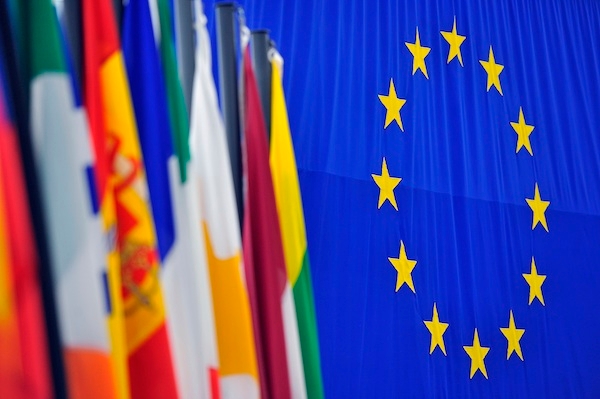Ben Goldsmith, Partner at WHEB Partners and signatory to Business for Britain
In the private sector, every business must provide regular and accurate accounts. Yet when you try to look into the European Union’s income and expenditure there is just obscurity, masking a black hole of inefficiency and waste. The EU’s finances are a mess – the Court of Auditors has refused to sign off the EU’s accounts for eighteen years successively. The costs of EU membership to the UK are high – around £8.9 billion in 2010/11, with the threat of increases to come. The EU is haemorrhaging cash and making the private sector pay for its financial recklessness, not to mention that of its members; just look at the way Brussels made a grab for the deposits of savers in Cyprus.
The EU needs to get a grip on its spending, as well as making a genuine commitment to transparency. In fact the EU should follow the UK by introducing total spending transparency, allowing the public to scrutinise every pound spent by every department. This should be followed with a European Freedom of Information Act to hold officials in Brussels and Strasbourg to account.
Moreover, the EU needs to commit to restoring business confidence and vitality across the continent, including across the booming so-called green industries in which I am involved, by working through, stream-lining and clearing out the reams of over-regulation and legislative obfuscation that engulf businesses across all sectors in the EU today.
Bill Cash MP
We need to repatriate our democracy and govern ourselves. It is therefore essential that the Prime Minister introduces a Bill so that a Referendum vote can take place before the General Election, followed by a fundamental renegotiation of the existing European Treaties, in line with the democratic wishes of the British people as expressed through that referendum. It is about democracy – what is required is the repatriation of the ability of the British people to govern themselves through their vote in General Elections, with their laws and in their Parliament. They cannot currently do this as the European Treaties prevent them from doing so.We want European trade and political cooperation in the EU but not European government.
Apart from the fundamental question of repatriating our democracy, those areas requiring repatriation include: social and employment laws; immigration; policing and criminal justice; energy; defence and importantly, for the sake of UK trade, financial services and small businesses, renegotiating our place in the Single Market because UK growth from the EU is now impossible. In 2011, the UK trade loss with the EU-26 was -£46bn. It has shot up in one year to an astonishing -£70bn in 2012.
As for financial services, Qualified Majority Vote and measures such as the Financial Transaction Tax will destroy the City of London, adding £4 billion to the cost of issuing UK debt. EU growth is zero. Our businesses are overburdened from EU Laws – EU red tape costs us about 4% of the EU’s GDP. Actual costs of EU regulation on British business amount to £7.4bn, according to the British Chambers of Commerce.
We need to repatriate the Common Agricultural Policy (CAP), which absorbs around 40% of the EU budget; the Common Fisheries Policy which has created awful waste through the discarding of fish and the Regional Development Policy. It is long overdue.
Nancy Dell’Olio
If renegotiating sovereign powers is the only way to silence the sceptics and stay in, then I’m behind David Cameron on this one. He must do whatever it takes.
Throughout my career in politics and law, here and in Italy, I have always maintained the belief that the advantages of being part of the EU far outweigh the disadvantages. That is as true for the UK as it is for every member state.
Free trade and free movement of people to live and work and study across the EU reap economic benefits, particularly for those countries with the most to offer. But they are also the mainstay of a co-operative, collaborative, democratic international community.
It is impossible to deny that many migrants have abused the UK’s famously generous benefits system, and that is one area where the UK would benefit from greater control. But as the current controversy over Google’s tax avoidance proves, there would be advantages in further centralisation and collaboration, on the issue of tax in particular, too.
Being part of the EU will always bring risk and compromise, and there will always be people who are uncomfortable with that. But that is the reality of democracy, and the only alternative is isolation.
Matthew Elliott, Chief Executive of Business for Britain
Britain’s business community has often found itself marginalised in the debate over our relationship with Brussels. While politicians argue in Westminster, every day EU membership is chipping away at business confidence, as new directives and excessive regulations frustrate entrepreneurs and sap away the drive which start-ups rely upon.
In addition to the launch of Business for Britain with the support of 500 business leaders, a recent poll showed that a majority of BCC members say they want powers returned to the UK. And who could blame them when European Commissioners say that they want to regulate ‘every financial actor, financial market, financial activity and product’. The EU’s forcing through of the Financial Transaction Tax – completely against the UK’s national interests or wishes – marks a new low in London-Brussels relations.
A successful renegotiation has to give national parliaments a red card, a chance to say that any given item of European legislation shouldn’t apply in their country. It’s only fair that the UK Parliament has a veto on measures which go against our national interest, particularly those that would damage the UK economy. The unfair and outdated insistence on one-size-fits-all legislation has to go.






Comments